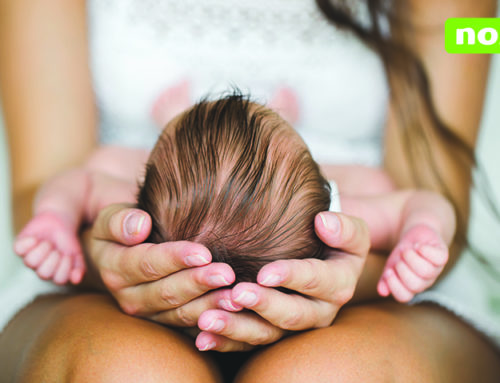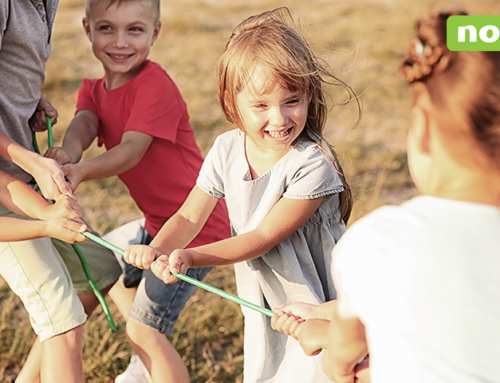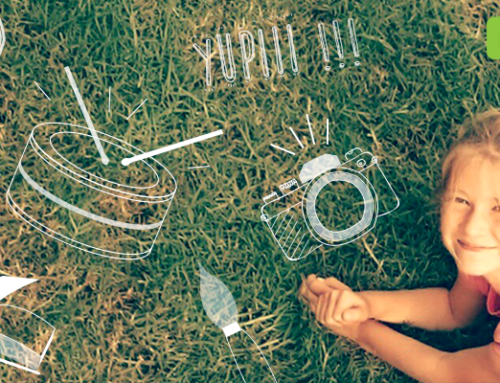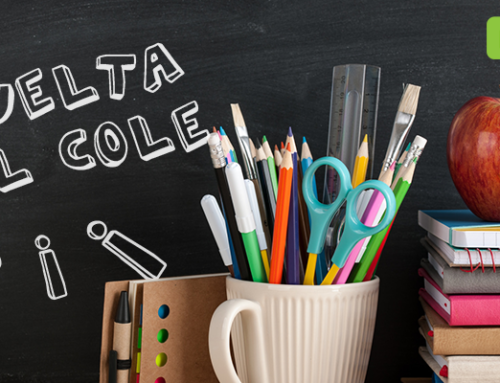Going to the swimming pool with children to cool off and play is a great way to excellent plan during the summer. However, we must take precautions to avoid accidents. Some precautionary measures are dictated by common sense, but not all. Sometimes we get distracted, downplay the risks or fail to warn our children about what to do.
In the article by Nosa Healthcare, today we share with you some expert advice on how to enjoy the pool with your children.
Safety first
Safety recommendations for going to the swimming pool with children
1. Always be accompanied by an adult
Children should not be left alone in or near the swimming pool. The company of older siblings or teenagers is not enough. A child can drown in just 20 centimetres of water and in just 3 minutes..
2. Do not rely on floats, hoses and other auxiliary equipment.
Sleeves, small floats and flotation devices are not 100% safeThey are just toys that help them to swim more easily. All of them should be use as long as the child remains under the supervision of an adult.. Just because they have these accessories, don't get overconfident and leave the little ones alone while you go somewhere else to sunbathe.
3. Master first aid techniques
Ideally, the pool should have an adult with knowledge of lifesaving and resuscitation skills pulmonary. If you visit public pools you already have a professional lifeguard, at least that's the regulation. In private pools, it is more difficult to have a lifeguard, so it is more difficult to have a professional one.e recommend that you take a course: learning these techniques is not difficult.
4. Check the condition of the stairs
Swimming pools must have at least two ladders: one in the deep end and one in the children's area. Before your children enter an unfamiliar pool, check the condition of the stairs - are they slippery, safe, with metal rungs or ceramic steps? Many private pools are inadequately maintained and ladders are places where fatal falls occur.
5. Check the depth
When going to a swimming pool with children for the first time, enter the water and check the depth. Especially if the pool has no safety markings. Even if the child knows how to swim, should be advised to swim or play only in the area where he/she can reach the bottom of the pool with his/her foot..
6. Exercise caution in the vicinity of the pool.
It is not recommended that children play alone around the pool.. Unexpectedly exposed to fallsIf children play near the pool, it is best that they do so under adult supervision. And if there are very young children (1 to 4 years old), toys that attract their attention should never be left floating in the water. After bathing, the pool should be kept clean.
7. Check child-resistant safety covers.
Swimming pools usually have filters with safety covers to prevent children from sticking their fingers in. If it is a public or private pool, do not trust it and take a look at the safety covers. In case of problems, inform the person in charge.
8. Advise them to stay close to the lifeguard at municipal swimming pools.
Most accidents occur in swimming pools without lifeguards. Teach the child to swim near the lifeguard. You avoid risky initiatives and give him a reference. However, don't walk away. Your children in the pool are your responsibility.
9. Educate to prevent
Educate your children that in any environment and circumstance always ask your permission before going to play in the pool, approaching the water and entering the pool.
10. Avoid digestion cuts
Teach your children to enter the water gradually. First hands, feet, legs, wet head, then belly. Sudden changes in temperature cause vomiting and discomfort. After eating, it is not necessary to wait two hours for the digestion to progress, but it is advisable to enter the pool slowly to avoid digestion cuts.
11. The swimming pool in your home and preventive devices
When the pool is in your home, research alarms that you can put on the bottom of the pool to alert you to movements in the water. Use fences or perimeter fences to prevent children's access.. Invest in making your pool a safe swimming space.
12. Sign him up for swimming lessons
We recommend enrol your children in swimming lessons as early as possible. Knowing how to swim will help them cope better in the water and cope with risks. Swimming can save their lives in the future.







Leave A Comment
You must be logged in to post a comment.